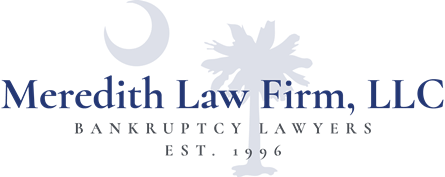
The Benefits of Declaring Bankruptcy for Your Student Debt
Did you know that student debt in the United States has reached an astonishing $1.7 trillion? If you’re struggling with student debt, you’re not alone. Many people are looking for ways to manage their loans and find financial relief.
One solution to consider is declaring bankruptcy. In this article, we’ll explore the benefits of declaring bankruptcy for your student debt and discuss how it can impact your financial situation.
Understanding Student Debt and Bankruptcy
When you take out a loan to pay for college, this is called student loan debt. Many people have a hard time paying back their student loans, and this can cause a lot of stress.
Sometimes, people think about declaring bankruptcy to help with their financial troubles. Bankruptcy is a legal process that can help people get a fresh start with their finances. There are different kinds of bankruptcy, but the most common types are Chapter 7 Bankruptcy and Chapter 13 Bankruptcy.
Benefits of Declaring Bankruptcy for Your Student Debt
Declaring bankruptcy can help you with your student loan debt in a few ways. Let’s look at the benefits of declaring bankruptcy and how it can help you manage your financial problems.
Discharging Other Unsecured Debts
One of the main benefits of declaring bankruptcy is that it can help you get rid of other debts that you have. These are called unsecured debts and can include things like credit card debt, medical bills, and personal loans. When you don’t have to pay these debts anymore, you might have more money to put toward your student loan debt.
When you have less debt to worry about, you can focus on paying back your student loans. This can make it easier to manage your money and plan for the future.
With fewer bills to pay, you can put more money towards your student loan debt. This can help you pay it off faster and save money on interest.
Automatic Stay Provision
When you file for bankruptcy, there is a special rule called the “automatic stay.” This rule helps protect you from creditors while your bankruptcy case is going on.
The automatic stay stops creditors from trying to collect money from you or taking you to court. This can give you some peace of mind and a break from the stress of dealing with debt.
With the automatic stay in place, you can take some time to figure out your finances and plan for the future. This can help you make better decisions about how to handle your student loan debt.
Negotiating New Payment Plans
Bankruptcy can sometimes help you negotiate new payment plans for your student loans. This can make it easier for you to pay back the money you owe.
If you can lower your monthly payments, it might be easier for you to pay off your student loan debt. This can help you avoid missing payments and getting into more financial trouble.
Sometimes, bankruptcy can help you get more time to pay back your student loans. This can make your payments smaller and easier to manage.
Improving Financial Habits and Future Planning
When you go through bankruptcy, you will often have to take classes on managing your money. This can help you learn how to handle your finances better and avoid problems in the future.
These classes can teach you about budgeting, saving, and managing debt. This can help you make smarter choices about your money and avoid getting into more financial trouble.
Learning how to plan for the future can help you make better decisions about your student loan debt. This can help you find ways to pay it off faster and save money in the long run.
The Process of Declaring Bankruptcy
To start the bankruptcy process, you should talk to a bankruptcy attorney. This is a lawyer who knows a lot about the rules for bankruptcy and can help you make the right choices. You can also work with a bankruptcy law firm, which is a group of lawyers who help people with bankruptcy cases.
First, your attorney will help you decide which type of bankruptcy is best for you. Remember, there are two main types: Chapter 7 Bankruptcy and Chapter 13 Bankruptcy. Chapter 7 Bankruptcy helps you get rid of some of your debts, while Chapter 13 Bankruptcy sets up a plan for you to pay back your debts over time.
After you choose the right type of bankruptcy, your attorney will help you fill out the paperwork. This can be confusing, so it’s important to have someone help you.
Once the paperwork is done, you will have a meeting with a person called a trustee. The trustee will ask you questions about your finances and make sure everything is correct.
The bankruptcy process can take a few months to finish. During this time, it’s important to follow the rules and work with your attorney.
Keep in mind that there are some downsides to declaring bankruptcy. For example, it can hurt your credit score and make it harder to get loans in the future.
Additional Considerations
Before you decide to declare bankruptcy, it’s important to think about other ways to manage your student loan debt. There are many options out there that can help you without having to go through bankruptcy.
Income-driven Repayment Plans
These are special plans that let you pay back your student loans based on how much money you make. If you don’t make a lot of money, your payments could be very low or even zero.
Loan Forgiveness Programs
Some jobs, like teaching or working for the government, might let you have your student loans forgiven. This means you don’t have to pay them back if you work in one of these jobs for a certain amount of time.
Refinancing and Consolidation
You might be able to get a new loan with better terms to pay off your student loans. This can help you save money on interest and make your payments more affordable.
Potential Downsides
It’s important to weigh the pros and cons of bankruptcy before making a decision. While it can help you with your student loan debt, there are also some downsides to consider. For example, bankruptcy can stay on your credit report for up to 10 years.
This can make it harder to buy a house, get a car loan, or even rent an apartment. It can also make it harder to find a job because some employers check credit reports.
Lastly, remember that declaring bankruptcy can lead to foreclosures. This means that if you own a house and can’t pay the mortgage, the bank might take the house away from you. This is another reason why it’s important to think carefully before declaring bankruptcy.
Navigating Student Debt Relief
Declaring bankruptcy can offer several benefits for those struggling with student debt. It’s essential to weigh the pros and cons carefully and consider alternative solutions before making a decision.
At Meredith Law Firm, we understand the challenges that come with student debt and can help you explore your options. If you’re interested in learning more about bankruptcy or other debt relief options, don’t hesitate to contact us. Our experienced bankruptcy attorneys are here to guide you through the process and help you find the best solution for your financial future.
